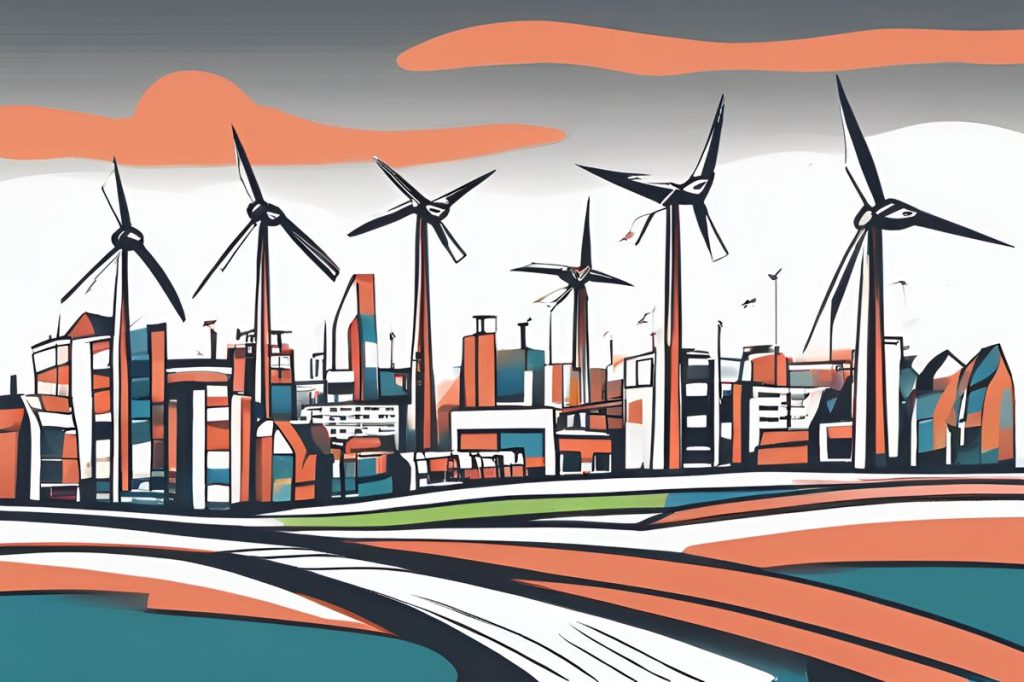Limassol has been honored with the EU Mission Label for its ambitious climate goals, aiming for neutrality by 2030. This recognition not only showcases Limassol’s dedication to sustainability but also grants easier access to funding, positioning the city as a model for green initiatives and inspiring others towards a greener future.
What recognition has Limassol received for its climate goals?
Limassol has been honored with the European Union’s Mission Label for its ambitious plans to achieve climate neutrality by 2030. This award highlights Limassol’s dedication to environmental sustainability and supports the city’s green initiatives through easier access to funding. Limassol aims to serve as a model for other cities in the journey towards a sustainable future.
A Recognition of Sustainability Efforts
Limassol, a vibrant city on the southern coast of Cyprus, has recently been named as one of 23 cities to receive the European Union’s Mission Label. This accolade is in recognition of the city’s ambitious plans to achieve climate neutrality by 2030. Winning this label not only showcases Limassol’s commitment to environmental sustainability but also facilitates easier access to funding—both public and private—to support the fruition of these green initiatives.
The European Commission commended these cities, including Limassol, for leading the charge towards a more sustainable and healthier future. By outlining comprehensive Climate City Contracts, which include both an action plan and an investment strategy, Limassol has cemented its position as a forward-thinking city dedicated to ecological transformation.
Paving the Way to a Greener Future
These efforts are part of a larger European vision to develop 100 climate-neutral and smart cities by 2030. Limassol, along with its fellow awardees, is set to become an experimentation and innovation hub. The goal is to create replicable models of sustainability that can be adopted by other European cities, thus contributing to the continent-wide effort to achieve climate neutrality by 2050.
Joining Limassol in this prestigious recognition are cities from across Europe, including four from Greece—Ioannina, Kalamata, Kozani, and Thessaloniki—as well as other prominent cities such as Barcelona, Seville, Malmo, Lisbon, Florence, Marseille, Lyon, and Izmir. These cities have each demonstrated a strong vision and dedication to tackling climate change head-on.
Green Initiatives Leading the Charge
In recent years, Limassol has been actively working towards enhancing its environmental credentials. Previously named the “Green City of Cyprus,” the city was lauded for its initiatives such as the introduction of a free park and ride system designed to reduce city traffic and carbon emissions. These efforts have not gone unnoticed, and in 2022, Limassol was among the 100 EU cities selected to pioneer the path to climate neutrality.
With the European Commission President Ursula von der Leyen advocating for trailblazers to set even higher goals, Limassol’s commitment to this cause is clear. The city is poised to spearhead the transition towards climate neutrality in Cyprus, supported by the belief that a greener future is not just a vision, but an actionable reality that can be achieved through consistent effort and international cooperation.
A Model of Ecological Commitment
In achieving this EU Mission Label, Limassol stands as a testament to what can be accomplished through dedication and strategic planning. As other cities across Europe and the globe look to address the pressing issue of climate change, Limassol’s example serves as an inspiring model of commitment to creating a sustainable and environmentally responsible urban landscape.
The success of these green initiatives relies on the support of the citizens, local businesses, and policymakers, all working cohesively towards the common goal of a climate-neutral Limassol. With continued innovation and determination, the city is well on its way to carving out its identity as a leader in environmental stewardship and climate action.
What recognition has Limassol received for its climate goals?
Limassol has been honored with the European Union’s Mission Label for its ambitious plans to achieve climate neutrality by 2030. This award highlights Limassol’s dedication to environmental sustainability and supports the city’s green initiatives through easier access to funding. Limassol aims to serve as a model for other cities in the journey towards a sustainable future.
What does the EU Mission Label signify for Limassol?
The EU Mission Label signifies recognition from the European Union for Limassol’s commitment to achieving climate neutrality by 2030. This label grants Limassol easier access to funding, both public and private, to support its green initiatives and serves as a validation of the city’s efforts towards sustainability. It positions Limassol as a model city inspiring others towards a greener future.
What are some key initiatives that Limassol has undertaken to work towards climate neutrality?
Limassol has implemented various green initiatives to work towards its climate neutrality goal. These include the introduction of a free park and ride system to reduce city traffic and carbon emissions, as well as comprehensive Climate City Contracts outlining action plans and investment strategies. Additionally, the city is part of a larger European vision to develop 100 climate-neutral and smart cities by 2030, contributing to a continent-wide effort to achieve climate neutrality by 2050.
How does Limassol’s commitment to sustainability impact its position in Cyprus and Europe?
Limassol’s commitment to sustainability positions it as a leader in environmental stewardship and climate action in Cyprus and Europe. By receiving the EU Mission Label and being recognized as one of the cities pioneering the path to climate neutrality, Limassol sets an example for other cities to follow. The city’s dedication to creating a sustainable urban landscape through ongoing innovation and cooperation with stakeholders reinforces its identity as a model of ecological commitment.

